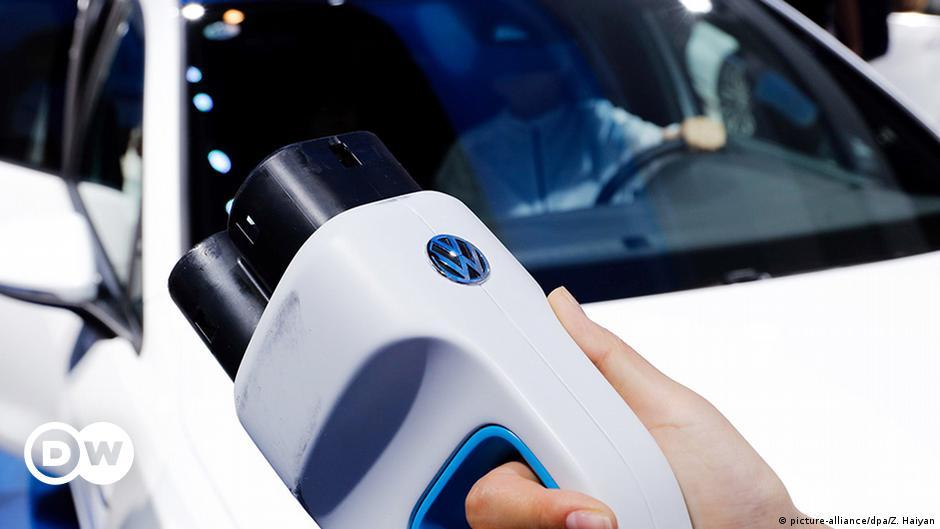Apple, HP, Dell, Microsoft, and Lenovo of China topped the list of the most environmentally friendly green technology companies in the 2018 report of the Greenpeace Organization (Greenpeace), the largest organization Civil defenders of the environment in the world, after each of them achieved positive and remarkable results in terms of combating the emission of greenhouse gases and the rise in global temperature (the greenhouse effect), as well as the treatment and recycling of hazardous waste, whether solid electronic or chemical liquid, resulting from the manufacturing activities of computers, mobile phones, and other electronic and other informational devices.
The report, issued on the occasion of World Earth Day, which fell on April 22, showed that Apple was able to operate its data centers with 100% clean renewable energy, while HP reduced greenhouse gas emissions from its factories by 21%, and Dell was able to A third of the plastic waste used in manufacturing computers is recycled, while Microsoft announced its commitment to implement the commitments of the Paris climate agreement and the clean energy plan, and Lenovo pledged to end its use of certain dangerous chemicals.
The organization ranked these companies as the most environmentally friendly technology companies in 2018, while Google unexpectedly came out of the top five, after it was in the first place in 2017.
Greenpeace pointed out that the most obvious negative observation is that most technology companies rely on a business model that requires consumers to frequently purchase new phones, laptops and tablets, which results in a lot of waste.
Environmental experts at Greenpeace argue on this point by saying that the issue of the business model is not the most harmful to the environment, because between 70 and 80% of the harmful environmental impact of the technology industry occurs during manufacturing, not due to repeated purchase, and the issue has to do with how it is used The device, and how to obtain and dispose of it, because there are now over 65 million metric tons of e-waste in the world.
Electronic device manufacturing operations are concentrated in China and Southeast Asia, where hazardous materials harmful to the environment are used, resulting in hazardous waste and the widespread use of fossil fuels (petroleum and coal) in manufacturing processes, and major companies have begun to address this matter through recycling programs.
"Apple" .. the most transparent
“Lenovo” .. Reducing emissions The Chinese company "Lenovo" is working hard to outpace its Chinese counterparts in the field of the environment, and has presented plans that explain how it will reduce its emissions of harmful greenhouse gases, and it has also pledged to end its use of certain dangerous chemicals, and to recycle some of the plastic used in its manufacturing process, and is committed to reducing emissions of harmful gases. in its own operations by 40% before 2020, and forced most of its suppliers to set specific, actionable targets for harmful gases. 65 million metric tons of e-waste in the world. |
Greenpeace believes that Apple has had a very successful year in terms of environmental friendliness, has been more transparent than many companies about its supply chain and the need to make them more aware of this aspect, and has invested more than other companies in recycling programs, It has also operated its large data centers with 100% renewable energy, announced its support for the Paris climate agreement, is implementing a program to support efforts to eliminate child labor in the field of hazardous waste, and is making greater efforts to transition to a closed supply chain.

HP..high quality
As for HP, according to Greenpeace, it is going in the opposite direction to what most technology companies are doing. While the majority adopt the method of short-lived products that need to be renewed and replaced within a short period, and forcing consumers to leave them and buy the latest, the HP produces high-quality devices that are more durable, have a longer life, and can be expanded, upgraded and added to without the need to change them, which reduces waste and manufacturing processes.
Greenpeace says that HP has set concrete goals to reduce emissions throughout its supply chain, and publishes a list of substances that are committed to restricting their use during the manufacturing process, which made it reduce greenhouse gas emissions in the supply chain by 21%, and supported more than 90% of its suppliers provided the necessary awareness materials, and it also announced its commitment to the commitments of the Paris Climate Agreement, and reduced its consumption of materials consumed in manufacturing and packaging to 900,000 tons, and reduced equipment and equipment required to be recycled to 119,000 tons.
Dell.. combating child labor
Dell is one of the few big tech companies to openly offer an extensive and detailed list of suppliers, as well as the type of services offered for each deal, takes an approach similar to HP in providing the most sustainable and upgradable hardware, and implements a cycle Closed production In terms of plastics, anything used is subject to recycling and reuse, and this closed cycle has achieved the recycling of about a third of the plastics used in its plants.
Dell issues comprehensive guides on how to repair laptops and tablets, and works with authorities in many countries to combat child labor in waste, and to identify, contain and reduce the use of hazardous chemicals needed for their devices.
"Microsoft" .. the climate agreement
Greenpeace pointed out that Microsoft is classified as among the companies that adopt the approach of short-lived products, but in return it has announced its commitment to the commitments of the Paris climate agreement and the clean energy plan. The company has also supported environmental efforts in Japan, is implementing a plan to make its data centers more environmentally conscious as it expands globally, and is making efforts to combat child labor in waste.
SharePrintFacebook Twitter Linkedin Pin InterestWhats App